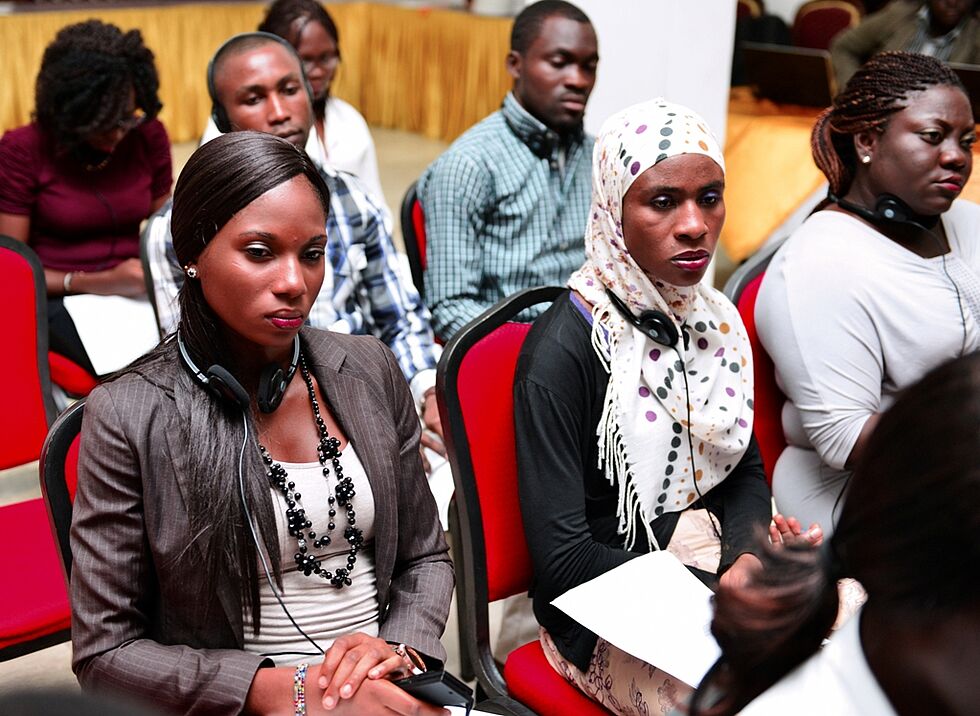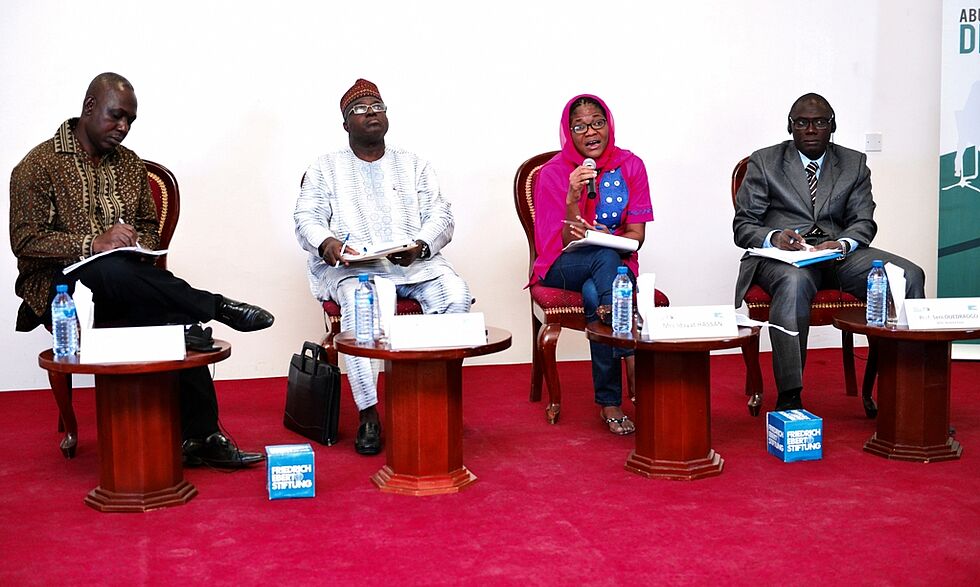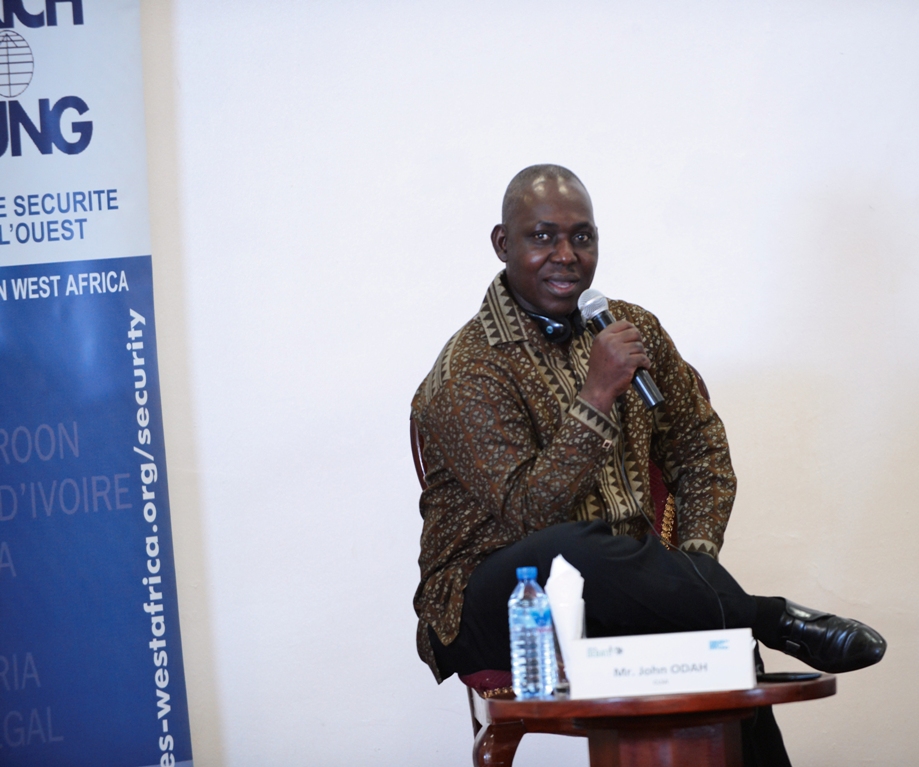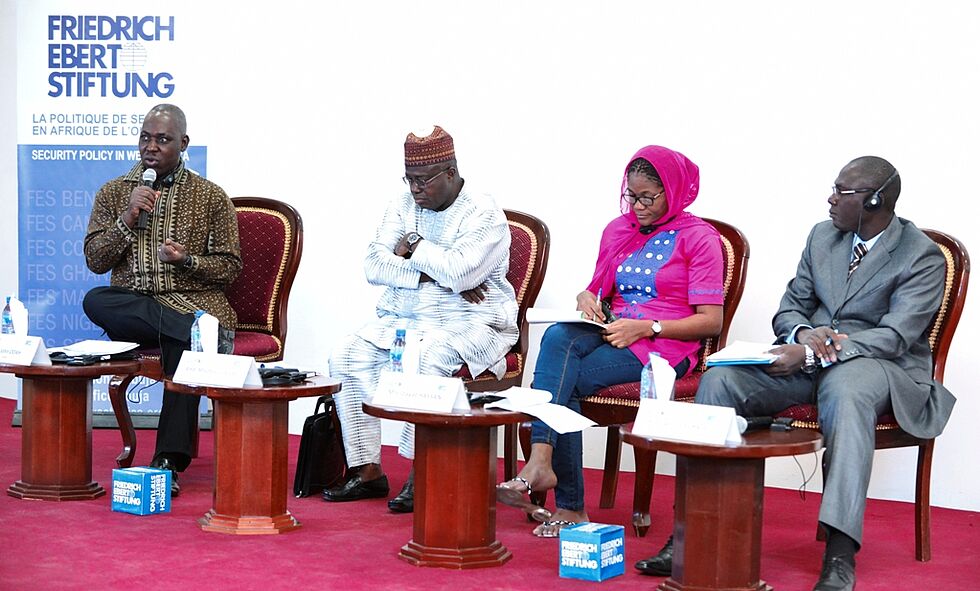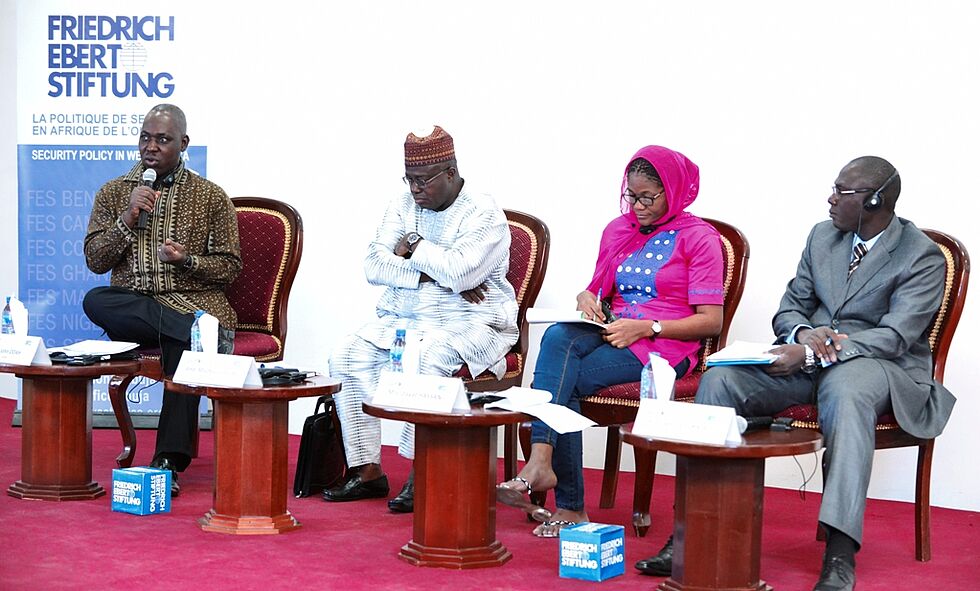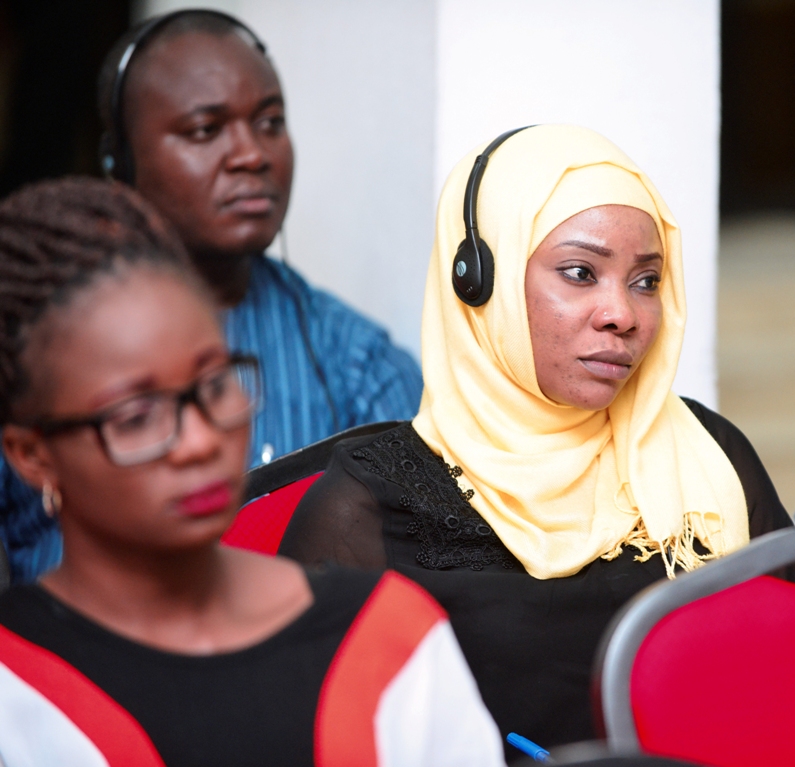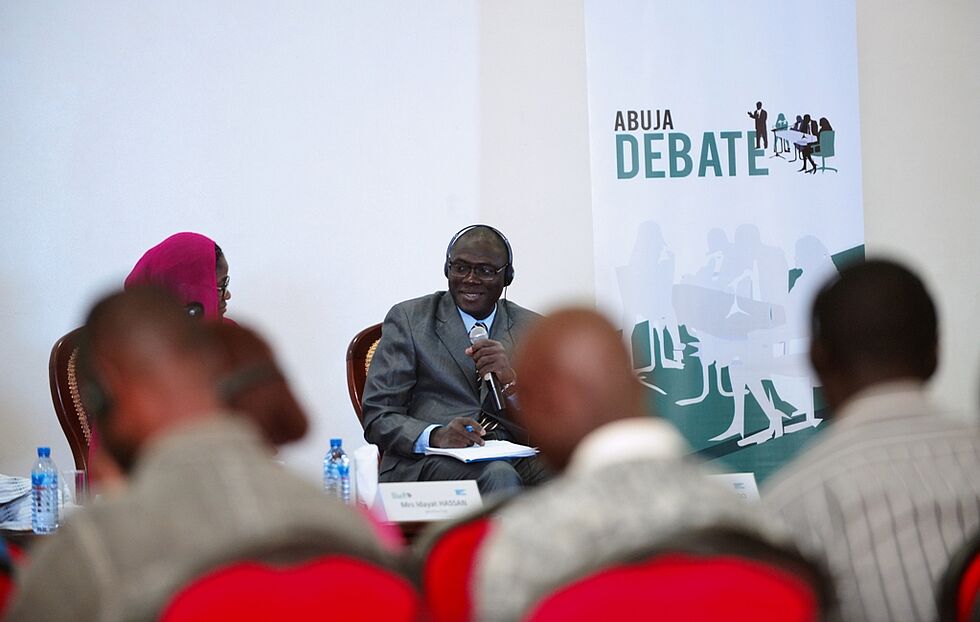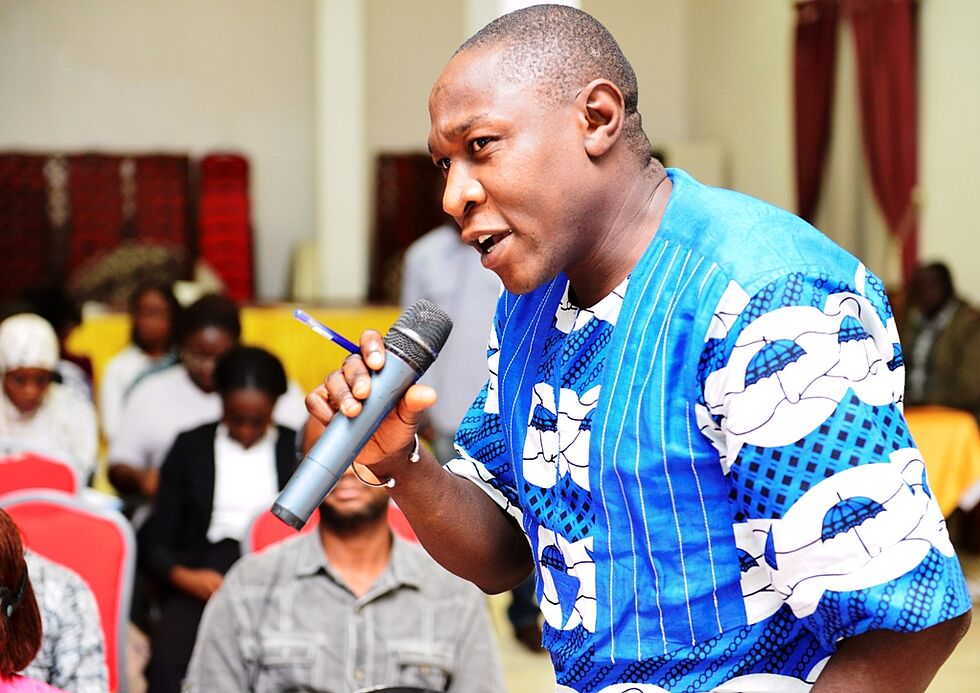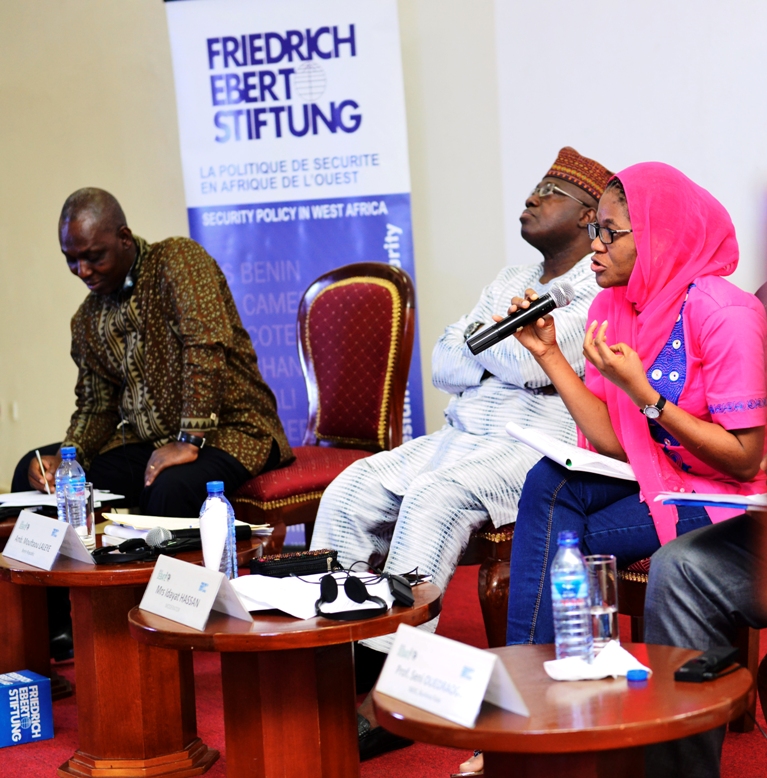Abuja Debate: Constitutional Debates and Democracy – Is Democracy Losing Ground?
On June, 26th, 2014 the Friedrich-Ebert-Stiftung continued the series of Abuja debates and again provided a platform for representatives of civil society, high-ranking officials as well as politicians and academics to exchange informally on the development of Constitutional Democracy in West Africa. Discussants and guests from the Centre for Democracy and Development (CDD), the Centre for Labour Studies and Advocacy in Nigeria (CLSA), from West African and European Embassies as well as Trade Unions, Youth Organisations and journalists accepted the invitation and contributed actively to a fruitful and challenging debate.
The decrement of armed conflict and civil wars in West Africa, has paved the way for peaceful changes of governments through democratic elections. On the other hand, a number of Heads of State still outlived the maximum number of legislative periods and has successfully remained in power opposition and violence. Guinea-Bissau and Mali experienced coups d’état just recently since. Benin, for example, has been seen as one of the well-functioning young democracies of West Africa. The constitution of 1990, along with the constitutional court, has been regarded as an anchor of stability. All of a sudden however, on-going constitutional debates in several countries, including Burkina Faso as well as Benin, are stirring, demonstrating that the interference of the military into politics is not a story of the past either.
In view of these developments, which are threatening the democratic progress, the approaching presidential elections in several ECOWAS Member States in 2015, have sparked discussions on the overall sustainability of democracy and, by extension, on regional peace in West Africa.
Following a welcome address by Mr. Simon Asoba for FES West Africa, Mrs. Idayat Hassan, the Executive Director of CDD, gave an overview of recent political developments in West Africa, which were both alarming and, as she argued, raising the question whether democracy in West Africa was receding. Subsequently, an interactive debate was delivered by a panel consisting of his Excellency Mouftaou Laleye, Ambassador of Benin Republic in Nigeria, Prof. Seni Ouedraogo, Lecturer in the University of Ouagadougou, Burkina Faso and Vice-President of ‘Société Burkinabè de Droit Constitutionnel’ and Mr. John Odah, Director of the Center for Labour Studies and Advocacy, Nigeria.
The first panel discussion round ended in the appreciation of the strong opposition movements, currently standing against unconstitutional reforms throughout the region. Citing the example of Burkina Faso, Prof. Ouedragao stressed the fact that the last attempt of revising the constitution had actually been the first out of seven such attempts in the last 23 years, which could be successfully prevented.
His Excellency, Ambassador Mouftaou Laleye maintained that there was indeed a clear uprising of civil society taking place in most West African countries. The panellists further agreed that supranational bodies such as ECOWAS have, in spite of advanced sanction mechanisms against unconstitutional changes of government or any non-democratic modes of accession or retention of power at their disposal, not lived up to their mandates.
A prominent theme throughout the debate was the attempts of West African leaders to exceed the legal duration of presidential terms. Mr. Odah assessed that the change in leadership was a main feature of democracy.
Friedrich-Ebert-Stiftung
Peace and Security Centre of Competence Sub-Saharan Africa
Point E, Rue de Fatick x Boulevard de l'Est,
Residence Bity Lokho, 6th floor
B.P. 15 416
Dakar - Fann


